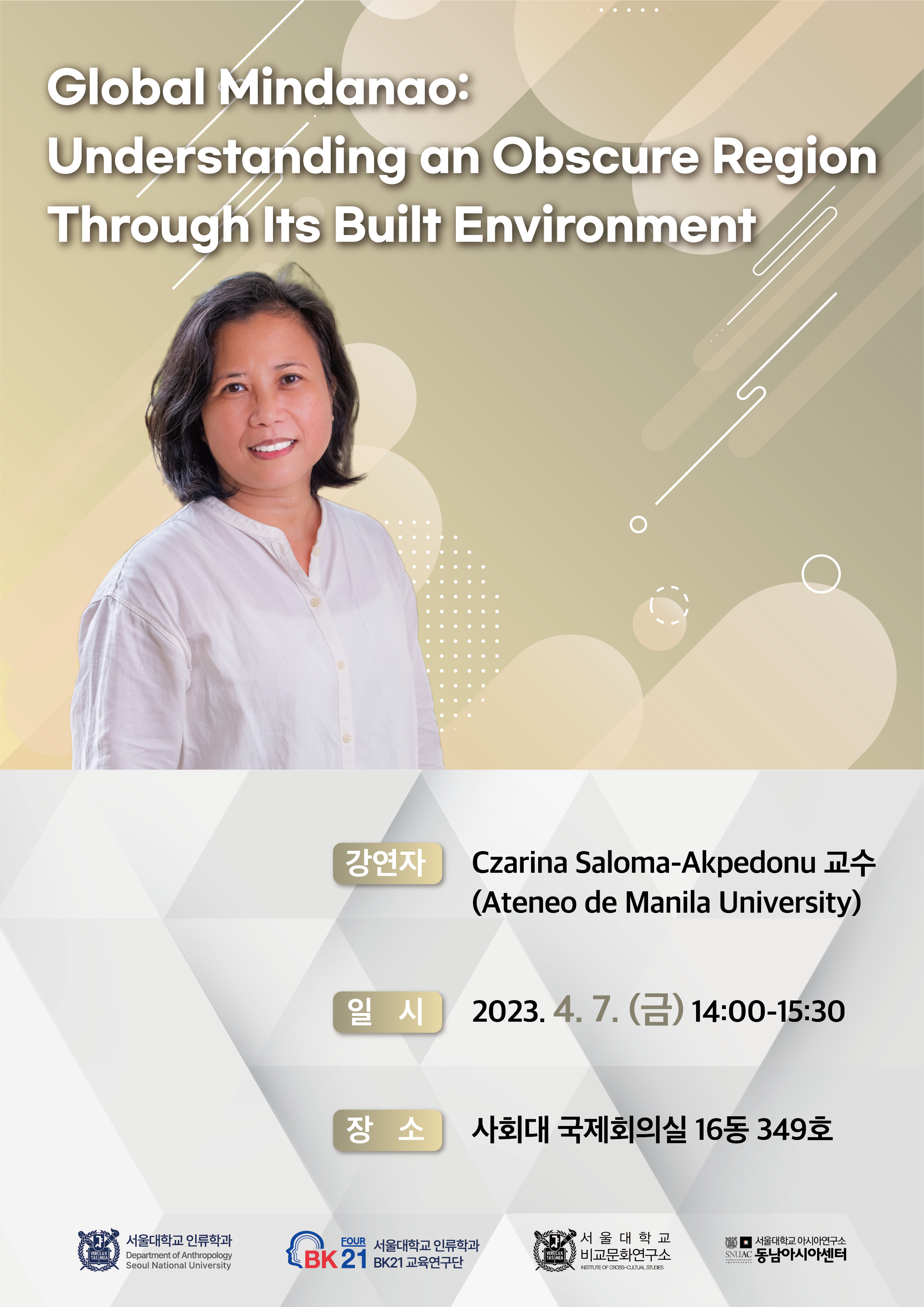
Over the centuries, trade across the Pacific and Indian Oceans, South China Sea, Straits of Malaca, Bay of Bengal and Arabian Sea integrated the Philippines, in itself full of diversity, into a global network of economic and sociocultural exchanges. However, often overlooked in the narratives and imagination of this long-distance and cross-cultural exchanges is the fact that these encounters were set in Mindanao, a region in the Southern part of the Philippines whose people engaged the wider world long before colonialism. A sociomateriality approach which recognizes that the social affects the material and vice versa will illustrate how the built environment of Mindanao cities encapsulates conjunctures of pre-colonial place-making, colonial town building, and post-colonial settlements. These built environments range from the dispersed habitat of indigenous settlers to the concentrated space of Islamized communities, from the Spanish plaza and church complex to American-era transformations in public spaces, to post-World War II settlements driven by capitalist ventures and intranational and international mobilities, including Korean immigration to the Philippines. The sociomaterial analysis of Mindanao in the contemporary world helps unpack the outcomes of global encounters that have been obscured in the Metro Manila-centric imagination of the nation. In doing so, it contributes to a more wholistic appreciation of a region that is typically but mistakenly understood as divided into two: one that is fragile and troubled; the other as the proverbial land of promise. It offers an alternative understanding of a region and a country that have a global history and broader links, relevance, and possibilities for the future.
Czarina Saloma-Akpedonu is
Professor at the Department of Sociology and Anthropology and Dean of the School of Social Sciences of the Ateneo de Manila University. She obtained her doctoral degree in Sociology from Universitaet Bielefeld in Germany, her M.A. in Population Science from Peking University in the People’s Republic of China, and her B.A. in Sociology from the University of the Philippines in Diliman. Her professional responsibilities included being Chair of the Department of Sociology and Anthropology, Director of the Institute of Philippine Culture, President of the Philippine Sociological Society, President of the Women’s Studies Association of the Philippines, Vice President of the Research Committee on the Sociology of Science and Technology of the International Sociological Association, and Chair of the Technical Panel for the Social Sciences and Communication of the Philippine Commission on Higher Education. Her publications span a full range of writing genres and audiences, including peer-reviewed research, technical reports, policy recommendations, and collaborative crossover books. She is the author of Possible Worlds in Impossible Spaces: Globality, Knowledge, Gender and Information Technology in the Philippines (Ateneo de Manila University Press, 2006); Casa Boholana: Vintage Houses of Bohol (with E. Akpedonu, Ateneo de Manila University Press, 2011); Many Voices, Many Journeys: Life and Times of Filipina Overseas Workers, 1960-2010 (with E. Manlapaz and Y. Buencamino, Anvil Publishing, 2015); and Food Consumption in the City: Practices and Patterns in Urban Asia and the Pacific (with M. Sahakian and S. Erkman, Routledge, 2016). Her work has received awards: a Best Book Award in the 2015 Migration Advocacy and Media Awards of the Commission for Filipinos Overseas, a Finalist citation in the 2016 National Book Awards of the National Book Development Board, the Ateneo de Manila University’s Loyola Schools “Outstanding Scholarly Publication Award in the Social Sciences” in 2012, and its “Scholarly Publication with the Most Social Impact Award” in 2017. Dr. Saloma-Akpedonu was named “Outstanding Young Scientist” by the Philippine National Academy of Science and Technology in 2007.





